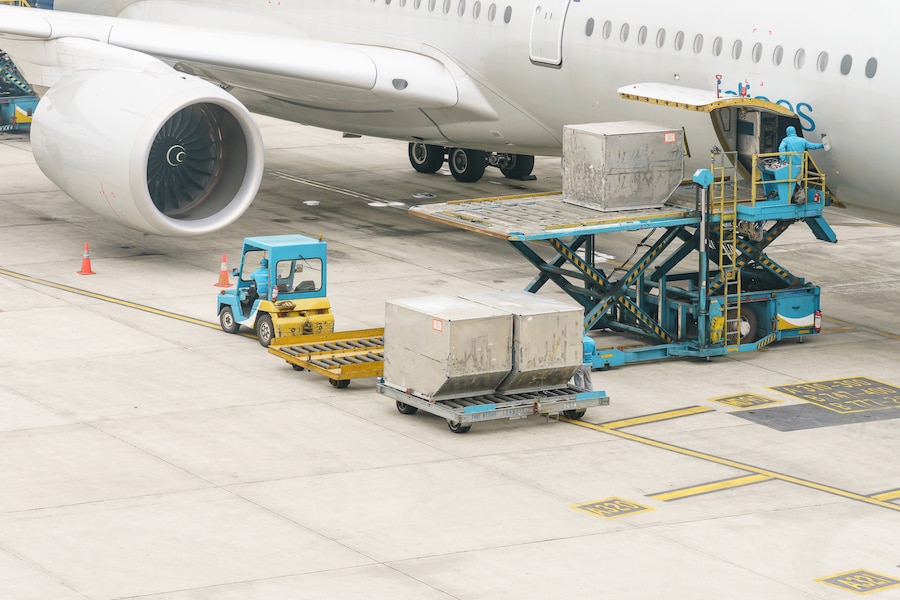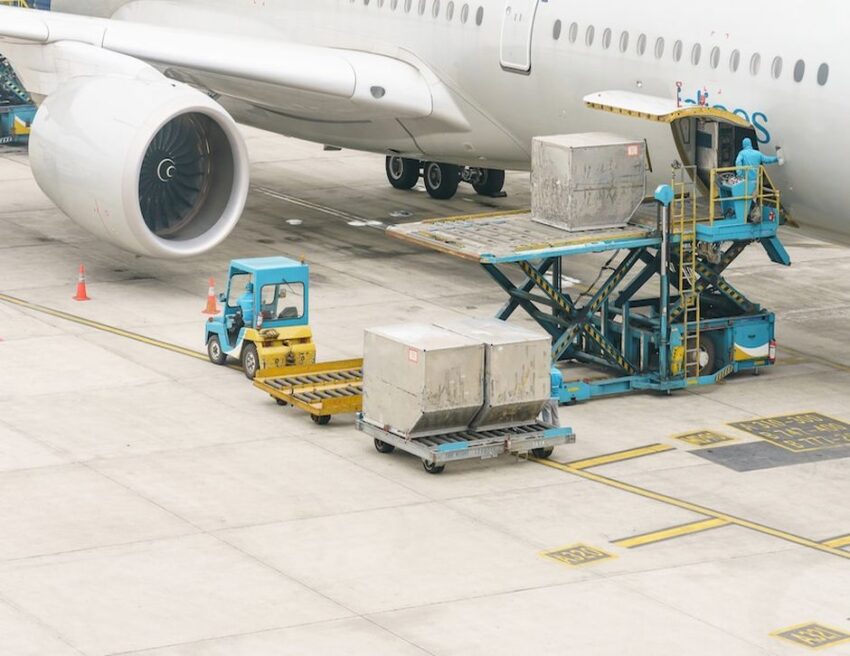The confluence of the pandemic and the exponential growth in e-commerce sales has injected a much-needed vitality into the air freight industry, establishing it as the foremost choice for rapid cargo transportation. The demand for expeditious cargo delivery is primarily fueled by customer expectations and the imperative to swiftly reach their intended destinations. However, despite being a sector that inherently values speed, the air freight industry significantly lags behind in terms of visibility, adaptability, and operational efficiency for air freight forwarders.
In a world that has recently grappled with a cascading supply chain crisis, escalating fuel and input costs, and an uncertain macroeconomic landscape, the air cargo industry has proven its resilience. It has faced acute supply constraints and a remarkable surge in demand. This, in conjunction with disruptive technological advancements, has triggered a transformative shift in the mindset of the air cargo sector. This shift is marked by a growing embrace of technology and digitalization as means to bridge existing gaps in supply chains and provide efficient services to their customers.

A data driven culture in the air freight industry
The automation of manual processes empowers employees to apply their skills and industry expertise to further enhance business operations. Additionally, the adoption of connected devices has instilled a data-driven culture within the air cargo industry. This transition to a “digital first” approach has resulted in the efficient handling of vast amounts of data, promoting lean practices and process improvements.
Matthieu Petot, CEO of CargoAi, highlighted recent innovations such as dynamic pricing adopted by airlines, enabling revenue maximization and swift quotations for forwarders. This is made possible through advanced search engines that provide multiple quotations simultaneously. Automation not only minimizes human errors in providing accurate quotations but also expedites CO2 calculations, facilitating informed decisions for sustainability efforts.
In 2021, Awery’s research discovered that a significant portion of cargo-related processes, such as quotes, pre-bookings, space checks, and bookings, still relied on emails for communication, accounting for 70 to 80% of these interactions. This manual approach incurred substantial human and financial resources. To address this, Awery developed eMagic, capable of extracting and converting data from various sources, including emails, text, and images, into instant air cargo quotes in standard formats like JavaScript Object Notation (JSON) and IATA ONE Record. This information flows seamlessly into bookings, payments, and tracking services, providing an end-to-end solution through Awery’s air cargo booking platform, CargoBooking. Users can review routes, prices, and capacity options, ultimately sending standardized quote offers to end customers. Confirmed bookings are seamlessly integrated into the systems of airlines and General Sales Agents.
IATA’s Initiatives in Digitizing the Air Freight Industry
The International Air Transport Association (IATA) is dedicated to advancing the digitization of the air freight sector. Their efforts focus on overcoming industry challenges through end-to-end supply chain collaboration, the development of new technologies, international standards, and streamlined operations. Moreover, in collaboration with the Cargo Operations and Technology Board (COTB), IATA is actively working to enhance industry standards and drive modernization by exploring innovative technologies within the air cargo supply chain.
One Record
This initiative establishes an information-sharing standard that creates a unified cargo record view. The One Record standard defines a common data model for all information shared through a web API.
Cargo Connect
This platform is designed to streamline, standardize, and upgrade interactions within the Cargo Community Systems. Additionally, it fosters digital collaboration, strengthening partnerships between carriers, air freight forwarders, and distribution companies to enhance efficiency.
Interactive Cargo
The Interactive Cargo project aims to provide the industry with responsive air freight services built on self-monitoring systems. These systems offer real-time updates, adapt to unexpected changes, meet client expectations, and provide shipment journey data for data-driven improvements.
FEDeRATED
IATA, in partnership with the European Commission, seeks to establish a credible and interoperable information-sharing infrastructure for the air freight industry. Moreover, the project involves collaboration with 15 companies located in Spain, Sweden, Finland, Italy, Luxembourg, and the Netherlands.
eAWB
The eAWB project represents IATA’s most ambitious initiative, involving a comprehensive industry-wide effort that includes forwarders, shippers, customs authorities, custom brokers, and ground handlers. Its aim is to digitize the end-to-end shipping process, eliminating the need for paperwork.
Why air freight forwarders need to embrace digitization now more than ever
According to Willie Walsh, the Director-General of IATA, “Air cargo demand is not merely rebounding from the Covid-19 crisis; it is expanding. With demand exceeding pre-crisis levels by 9%, one of the foremost challenges for air cargo is securing adequate capacity. This places cargo yields in a favorable position within an otherwise challenging industry landscape.”
Therefore, given this scenario, the air cargo industry must seize the opportunities presented by technological advancements more than ever before. The International Air Cargo Association (TIACA) has identified five critical priorities for the air freight sector to revamp its operations and meet evolving customer demands. These priorities encompass Digitization, Sustainability, Collaboration, Security Enhancement, and Liberalization.
The pandemic has underscored the urgent need to employ data for process modernization and to deliver transparent services. In essence, it is imperative for the air cargo industry to proactively implement digital transformation strategies. In addition, the pandemic has laid bare the inherent vulnerabilities of the sector, and the remedy lies in automation and digitization. The digitization of the air cargo industry holds the potential to enhance operational efficiency, flexibility, planning, and sustainability.
Potential of innovative digitization to revitalize the air cargo shipping industry
The integration of digitization has the potential to bring about a profound transformation within the air freight sector. Notably, it can facilitate alignment among carriers, shippers, and air freight forwarders, enabling real-time matching of demand and capacity. In essence, with the assistance of technology, the entire shipping process, from generating quotes to final delivery, could be streamlined to a mere 2-3 days. Beyond expediting the process, digitization also promises cost reductions, optimization of load factors, revenue growth, and an enhancement of customer service.
In simpler terms, offering superior services at competitive rates will lead to expanded revenues for all stakeholders involved. The adoption of this technology would standardize pricing on a global scale and introduce dynamic pricing, which replaces seasonal rates and empowers carriers to adjust prices in response to market dynamics. In sum, digitization has the potential to breathe new life into the air cargo shipping industry by increasing efficiency, reducing costs, and improving service quality.


